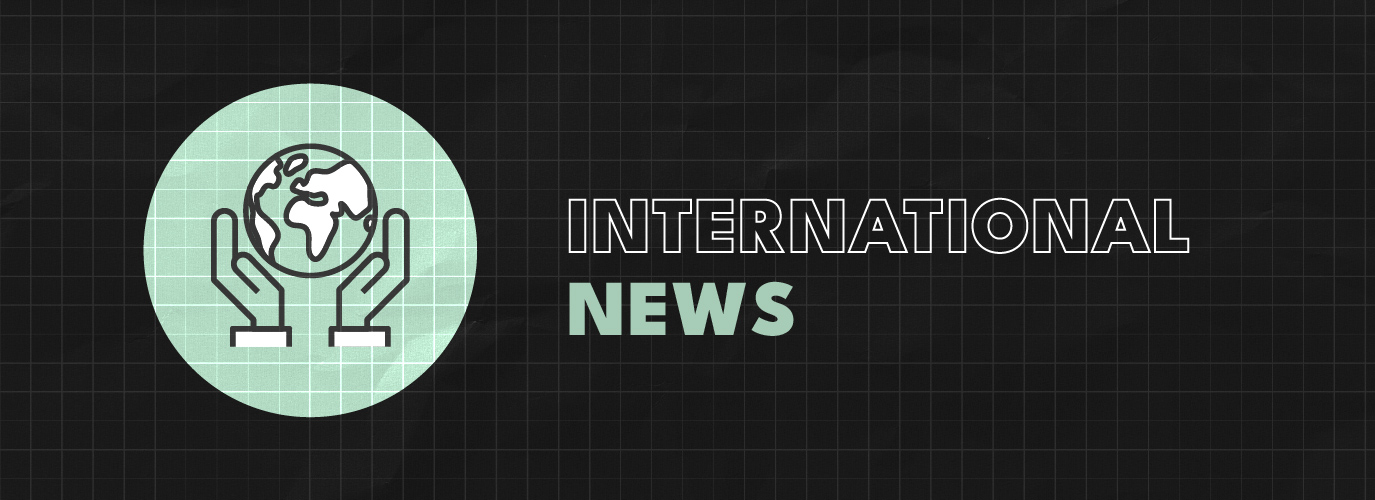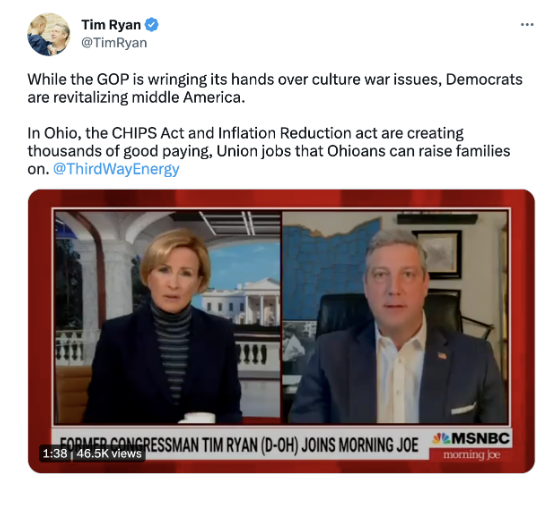On the Grid: Ensuring Clean, Firm Power 3/03/23

Click HERE to subscribe to this weekly newsletter.
There were two pieces of little-noticed good news for clean, reliable energy we wanted to highlight. First, the Nuclear Regulatory Commission granted an exemption to the Diablo Canyon nuclear power plant to continue operating while its license renewal application is processed. Second, the Biden Administration announced a $1.2 billion aid package to prevent early shutdowns of the nuclear plants providing affordable, reliable, and clean electricity and good-paying jobs for surrounding communities.
Nuclear energy will continue to play a substantial role in our clean energy economy. As we lay out in this week’s On the Grid, there is a lot more ground to cover to ensure America’s nuclear industry can meet the administrative, financial, and logistical challenges ahead.

This week in the Wall Street Journal, Senate Majority Leader Chuck Schumer called out Republican attacks on ESG (environment, social, governance) policies–where companies factor sustainability and social responsibility into their business model. A far cry from a politically correct fad, ESG practices are helping businesses cut costs, manage climate-related risks, and build a better reputation–all of which makes them better equipped to compete in the global marketplace. Meanwhile, those Republicans trying to make hay out of this are focused on stoking a culture war and undermining the long-term competitiveness of American businesses.
Current ESG standards must promote a wider breadth of clean energy technologies, including nuclear, to help us cut costs and ensure a reliable, secure, and clean energy supply. But they are an important set of actions by the private sector to meet market demand.

This week, Dow Chemical Company and X-energy reached an agreement to develop and demonstrate a 4-unit Xe-100 nuclear reactor at a Dow facility on the Gulf Coast, the first-ever advanced nuclear reactor to be added to an industrial site in North America. Nuclear energy can generate a reliable heat supply for a wide range of manufacturing processes like chemical production, which often requires a consistent heat source. Integrating advanced nuclear technology in our industrial sectors will help decarbonize some of the most energy-intensive business operations while keeping American companies competitive in an increasingly carbon-constrained global marketplace.

This week, the Commerce Department announced a new requirement for US companies to provide plans on how they will give their workers access to affordable childcare in order to be eligible for more than $150 million in funding from the CHIPS and Science Act. In today’s tight labor market, this just makes smart business sense, especially as middle and working-class families struggle to find affordable childcare.
It is important to ask how this rule will be implemented to ensure that needed manufacturing plants get built on time and at cost. Those questioning the proposal, however, should focus on the far larger problem on the horizon–administrative barriers. Onerous licensing and regulatory requirements are slowing down the approval and building process for clean energy projects, creating lengthy delays and uncertainty for project developers. These challenges are particularly acute for nuclear, transmission, and pipeline projects, which often require multiple approvals from various federal agencies. With over $500 billion in funding in hand, we’re now entering the next phase of clean energy development and must streamline our regulatory processes to ensure our carbon-free energy future is not caught in the red tape.

Nuclear energy is the single largest source of electricity generation in the European Union, with France getting more than half of its electricity from nuclear power, more than any member state. Now, the French government is leading the charge on creating a pro-nuclear alliance in the EU, with Bulgaria, Croatia, Czech Republic, Finland, Hungary, Netherlands, Poland, Romania, Slovakia, Sweden, and Slovenia, to carve out a centralized nuclear deployment strategy in Europe. Recognizing the climate and security value of nuclear energy, the French-led alliance is working to build a cohesive framework across all aspects of the nuclear supply chain while also ensuring nuclear is appropriately designated within the European Commission’s larger clean energy rules.
Nuclear energy will play a substantial role in Europe’s clean energy mix, providing firm and reliable energy as Member States transition away from fossil fuels. Modeling from Carbon-Free Europe shows that nuclear reactors, both next-generation and existing reactors, will be responsible for generating 17%-28% of the EU’s and UK’s electricity in 2050. There are still a number of financial, political, and social hurdles to overcome before Europe can deploy nuclear energy to the scale we need, but France’s coalition puts Europe on the right track.

- Carl Pope writes in Bloomberg on the division clean energy is sowing amongst Republicans as the economic and jobs benefits of the Biden Administration’s clean energy agenda begin to collide with core tenets of the Republican Party.
- Virginia Heffernan in Wired reflects on Lawrence Livermore’s recent achievement in nuclear fusion and the potential it has for our clean energy future.
- David Roberts, on the Volts podcast series, sits down with Heirloom CEO Shashank Samala and CarbonCure CEO Robert Niven to discuss their pioneering new partnership in capturing ambient carbon dioxide to, for the first time, permanently sequester it in concrete.

Tim Ryan, Third Way’s newest Senior Visiting Fellow, spells out how investments in clean energy are bringing new, good-paying economic opportunities to communities in Ohio.
Subscribe
Get updates whenever new content is added. We'll never share your email with anyone.



